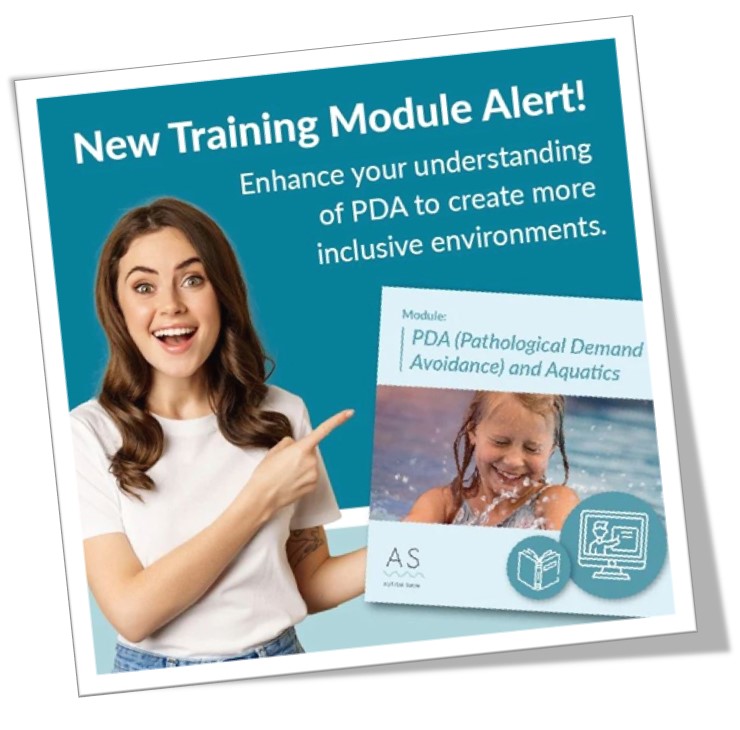STA Supports the Introduction of the New Aquatics PDA Training Module from Autism Swim
Posted on 25th October 2024
As part of STA’s ongoing partnership with Autism Swim, we are supporting the launch of their new Pathological Demand Avoidance (PDA) CPD, which has been specifically created for aquatic settings.
 Autism Swim, the world leaders in inclusive aquatics, combines its expertise with autism specialists, behaviour specialists, aquatic/occupational therapists, swimming teachers, and most importantly, those with lived experience to create their inclusive training programmes and CPD’s, which now extends to this new 90-minute aquatics-specific module to greatly expand a swimming teacher’s knowledge on PDA.
Autism Swim, the world leaders in inclusive aquatics, combines its expertise with autism specialists, behaviour specialists, aquatic/occupational therapists, swimming teachers, and most importantly, those with lived experience to create their inclusive training programmes and CPD’s, which now extends to this new 90-minute aquatics-specific module to greatly expand a swimming teacher’s knowledge on PDA.
What is PDA?
In an aquatic setting, someone with a PDA profile might:
- Find it difficult to follow instructions
- Overtake or control
- Experience sudden changes in behaviour
- Find it hard to follow the group plan
- Struggle with change.
In this new PDA CPD, swimming teachers will learn what actionable strategies and techniques can be used to better support individuals with a PDA profile. This includes how to conduct effective aquatic sessions, communicate with ease, enable instruction follow through, create safe and engaging experiences, and make sessions stress free and fun.
Antoinette Spear, Autism Swim’s General Manager, said: “91% of parents of children on the autism spectrum have left other aquatic services due to their child’s needs not being met. This alarming statistic highlights how this vulnerable group is being denied vital aquatic skills, increasing the risk of drowning by 160 times compared to their neurotypical peers. It is imperative that every aquatic provider takes action to learn more about neurodivergence, and develop strategies to offer effective lifesaving aquatic education to those with a PDA profile.”
Alongside this, STA also supports Swim Autism’s specialist CPD’s which cover Dyspraxia and ADHD, Behaviour Support, Communication, Neurodiversity and Aquatics, Introduction to Neurodiversity, Sensory Based Sessions and Visual Scheduling. Each has been designed to give swimming teachers an awareness and an understanding of how teaching practices can be adapted and modified to support and meet each learner’s specific needs, preferences and goals.
CLICK HERE FOR FURTHER INFORMATION
